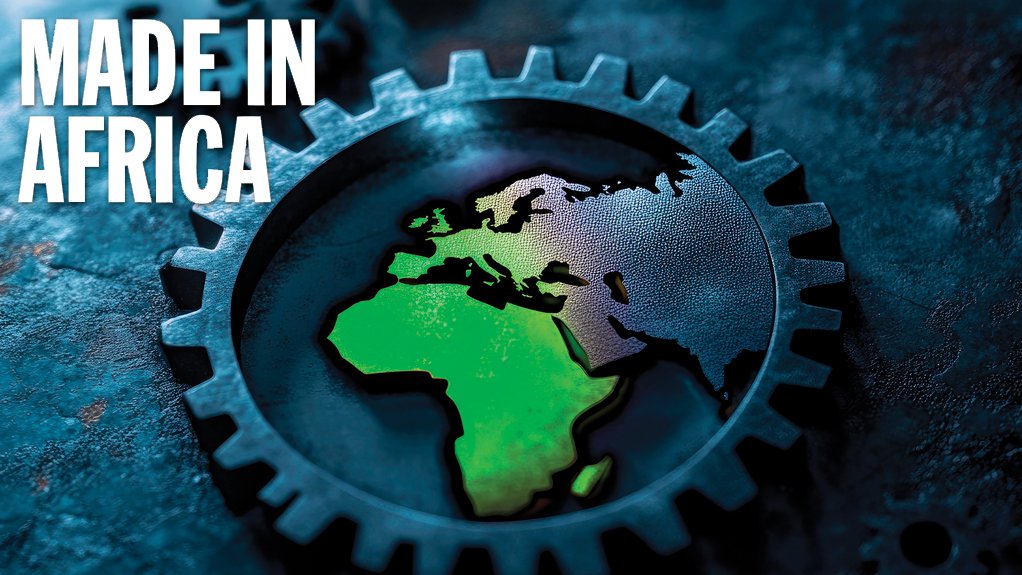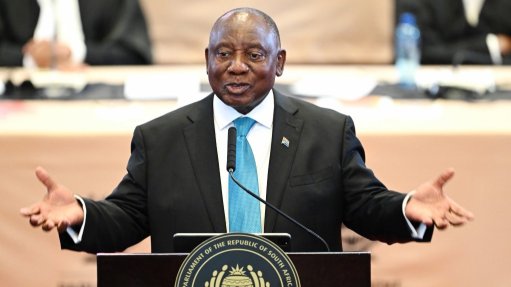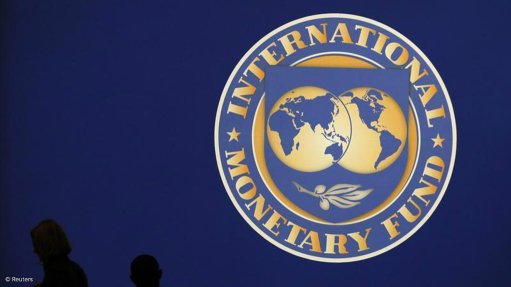Expert panel aims to champion African-centric green industry vision
In efforts to help the African continent champion its green industrialisation, the newly formed Green Industrial Development Expert Panel (GIDEP) highlighted during its inaugural meeting last month the importance of diversifying Africa’s economies, particularly those that are heavily reliant on resources, to make them more resilient to external shocks.
GIDEP – managed by the Nelson Mandela School of Public Governance, with support from the African Climate Foundation (ACF) – aims to convene strategic African and international thinkers on green industrialisation twice a year, with a focus on African contexts.
ACF executive director Saliem Fakir is confident that GIDEP will help to support the formulation of African-led policy positions, ensuring that the continent’s interests are effectively represented in key international forums and negotiation processes, including at COP climate conferences and those underpinning the African Continental Free Trade Area (AfCFTA), while ensuring that climate- compatible industrialisation advances.
“GIDEP offers a unique opportunity for African nations to lead in shaping the future of sustainable industrialisation. It is essential that we centre our approach on social, environmental and economic justice to unlock the full potential of Africa’s green industrialisation, ensuring equitable development and addressing profound inequalities faced by many communities,” Fakir states.
GIDEP has established a network of experts, which it will continue to develop so that it is able to provide much-needed technical support for countries developing and implementing green industrialisation plans. The panel will also address key knowledge gaps and incorporate lessons from other developing countries.
The experts include academics and people experienced in policy implementation at government level, as well as trade policy and industrial development experts.
African countries need to seize opportunities and engage with the complexities of green industrialisation now or risk becoming stuck in dead-end industries, says Nelson Mandela School of Public Governance chief research officer for climate and economic development Dr Nimrod Zalk.
Further, Fakir believes that African countries should move beyond the localisation paradigm to a more export-orientated paradigm. He cites Ethiopia, Nigeria and Kenya as examples in having started playing strategic roles in larger economies internationally. With some strategic vision and direction, countries can anchor green industrial capacities and solutions while also causing positive spill-over effects through regional value chains for other countries.
Countries such as Indonesia, Brazil, India, China, Morocco and Ethiopia have crafted some successful industrial policies to develop certain industries.
“There must be high levels of coordination between different parts of the economy to ensure different elements are brought together to drive policy reforms, trade frameworks and finance sourcing and negotiate with original-equipment manufacturers,” he adds.
Owing to the “long game” nature of industrial development, Fakir suggests GIDEP may in future expand to set up working groups that can present position papers to help guide governments and entities such as the secretariat of the AfCFTA.
Ultimately, the panel aims to draw expertise from individuals serving in existing institutions as it strives to develop a coherent and collaborative approach that is not defined by a single institution’s work.
Energy Opportunities
While GIDEP does not favour any one renewable-energy technology over others, there is consensus among the panel’s members that energy mixes must be strategically designed to link new energy sources with high potential for diversification of the economy, particularly in the green industrial space.
African countries are not huge emitters of carbon emissions, barring exceptions such as South Africa, with many already relatively decarbonised, Fakir notes. He deems this an opportunity to take Africa’s share of global GDP beyond the current paltry 3%, simultaneously leapfrogging towards greener operations from the start.
Fakir strongly believes that the continent needs more electrification and digitalisation, which can be realised through green industrial pathways, joint ventures with other countries that have experience and capabilities, as well as more regional coordination to resolve inhibiting factors such as high costs and limited access to financing.
In Zalk’s view, green industrialisation needs to be seen in broad terms, and GIDEP is encouraging a broader view of opportunities within the African context across a range of industries, including manufacturing, agriculture and mining.
He also believes that the continent is largely decarbonised already, owing to factors such as high levels of renewable energy like hydropower being used in many countries. A low-emission industrialisation path has become increasingly viable for others on the back of falling costs of solar PV, wind and battery storage, combined with Africa’s abundant solar and wind resources.
Zalk cites Ethiopia and Morocco as examples of economies that have managed to attract investment and create industrialisation links to low-carbon value chains, noting that this experience can be shared through a platform such as GIDEP.
“The idea behind the panel is to have a set of African voices that can form independent views on what the key issues are and what the strategic direction ought to be, as well as what types of policy instruments can be brought to bear to navigate and accelerate green industrialisation on the continent.”
Zalk stresses that the differences among countries that are heavily reliant on fossil fuels need to be taken into account, and that transition fuels, such as natural gas, should be pursued to strike an appropriate balance between the development needs of the continent and future consumer demand for decarbonised products globally.
Outlook
Zalk says much of the discussion around the growth trajectory of Africa has been taking place in wealthy Western countries rather than on the continent itself. Consequently, and sometimes with the best of intentions, proposals have been developed that are unhelpful to the continent, such as that it should pursue a strategy of “degrowth”.
GIDEP is a strong advocate for green industrialisation in Africa, and not degrowth, arguing that the continent should not be denied the opportunity to grow, since its contribution to greenhouse-gas emissions is the lowest of all the major continents. Consequently, the emphasis should be on green growth.
Now that the panel has started framing how Africa might position itself in the context of the contested international geopolitical environment and what some possible value chains could be pursued, the panel members will compile a position paper a few months after every meeting.
One challenge that African countries need to navigate is the changing global geopolitical landscape. This includes strategising how to mitigate the impacts of sweeping unilateral trade measures by strengthening relationships with trading partners that share similar outlooks and objectives.
Zalk says GIDEP ultimately aims to present an African perspective on green industrialisation in support of African institutions and governments at multiple levels. First, it seeks to strengthen the hand of African countries in international finance, trade and climate forums. Second, it aims to assist African intra-regional organisations, such as the AfCFTA and the African Union, in strategically framing green industrialisation issues.
Third, while the panel is not aiming to set out detailed country-specific strategies, it seeks to assist African countries in conceptualising green industrialisation opportunities and challenges and expanding the menu of available policy options.
There are many challenges on the continent that could inhibit further green industrialisation, including the limited availability and cost of financing, exacerbated by credit rating agencies’ excessively pessimistic view on African projects. Zalk argues that African development banks have a critical role to play in mobilising regional and domestic capital for green industrialisation.
GIDEP’s approach is neither about blanket pessimism nor naïve optimism, but is rather focused on what is possible and strategising accordingly, by learning from other countries globally and those on the continent that have notched up successes, Zalk concludes. Ultimately “it depends on what countries do, how they strategise, how they mobilise resources and how regional and national development banks get involved”.
Article Enquiry
Email Article
Save Article
Feedback
To advertise email advertising@creamermedia.co.za or click here
Press Office
Announcements
What's On
Subscribe to improve your user experience...
Option 1 (equivalent of R125 a month):
Receive a weekly copy of Creamer Media's Engineering News & Mining Weekly magazine
(print copy for those in South Africa and e-magazine for those outside of South Africa)
Receive daily email newsletters
Access to full search results
Access archive of magazine back copies
Access to Projects in Progress
Access to ONE Research Report of your choice in PDF format
Option 2 (equivalent of R375 a month):
All benefits from Option 1
PLUS
Access to Creamer Media's Research Channel Africa for ALL Research Reports, in PDF format, on various industrial and mining sectors
including Electricity; Water; Energy Transition; Hydrogen; Roads, Rail and Ports; Coal; Gold; Platinum; Battery Metals; etc.
Already a subscriber?
Forgotten your password?
Receive weekly copy of Creamer Media's Engineering News & Mining Weekly magazine (print copy for those in South Africa and e-magazine for those outside of South Africa)
➕
Recieve daily email newsletters
➕
Access to full search results
➕
Access archive of magazine back copies
➕
Access to Projects in Progress
➕
Access to ONE Research Report of your choice in PDF format
RESEARCH CHANNEL AFRICA
R4500 (equivalent of R375 a month)
SUBSCRIBEAll benefits from Option 1
➕
Access to Creamer Media's Research Channel Africa for ALL Research Reports on various industrial and mining sectors, in PDF format, including on:
Electricity
➕
Water
➕
Energy Transition
➕
Hydrogen
➕
Roads, Rail and Ports
➕
Coal
➕
Gold
➕
Platinum
➕
Battery Metals
➕
etc.
Receive all benefits from Option 1 or Option 2 delivered to numerous people at your company
➕
Multiple User names and Passwords for simultaneous log-ins
➕
Intranet integration access to all in your organisation





















